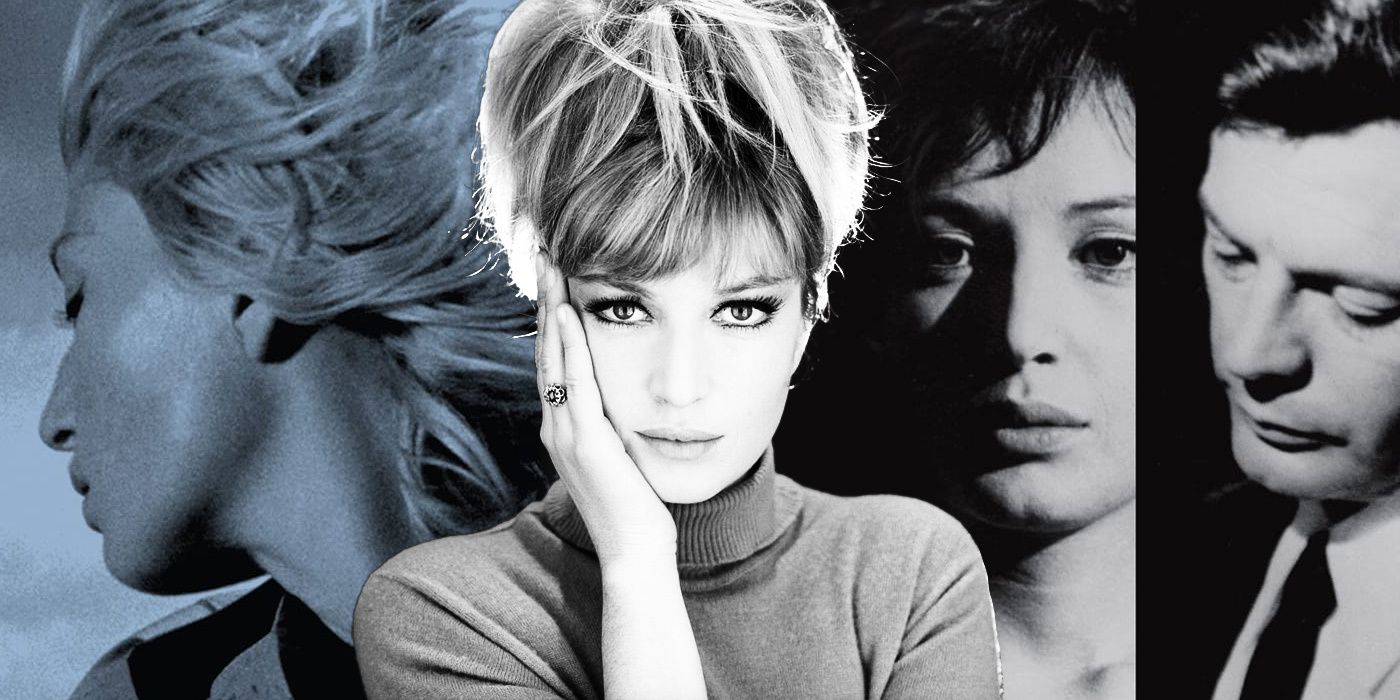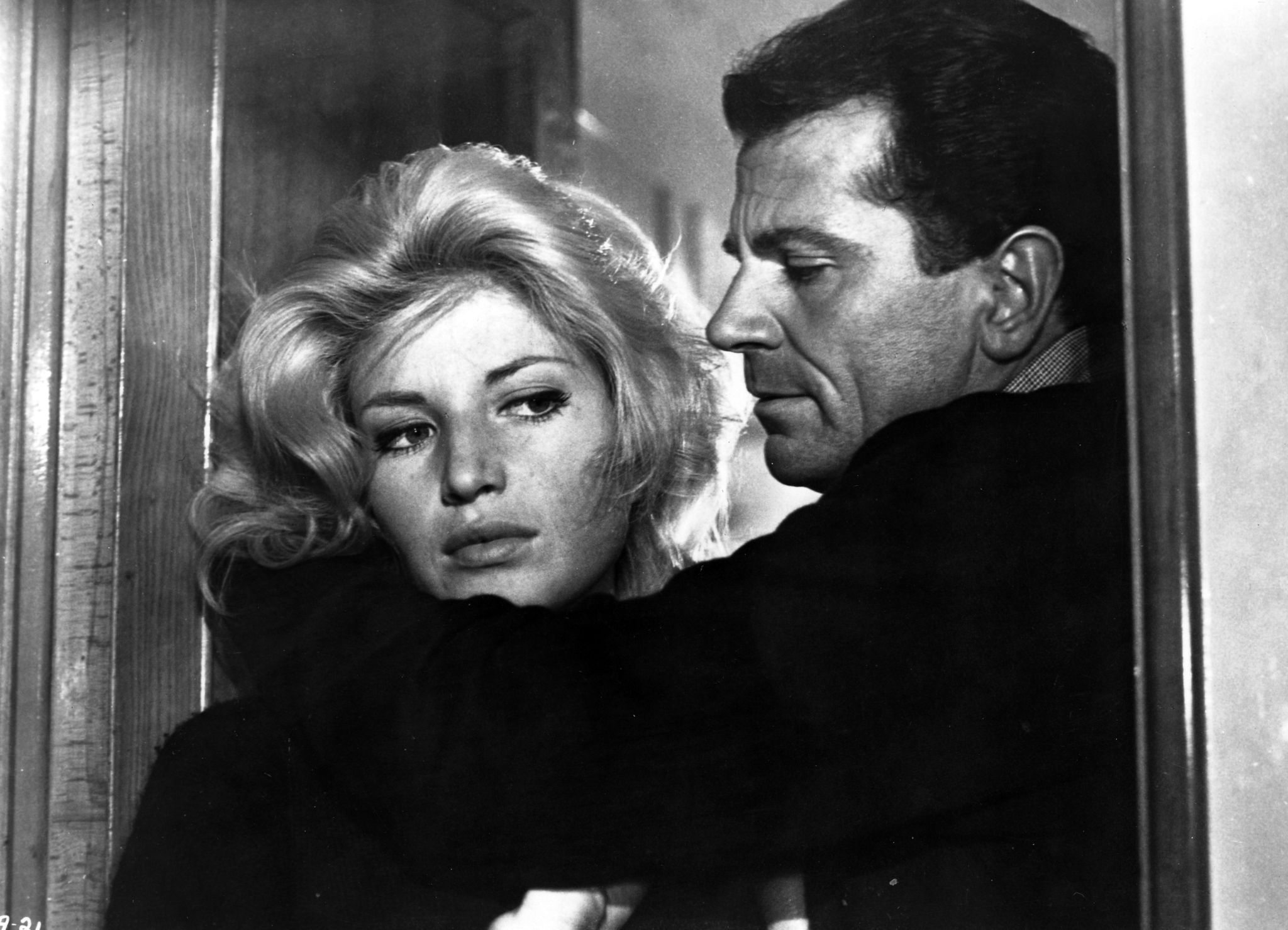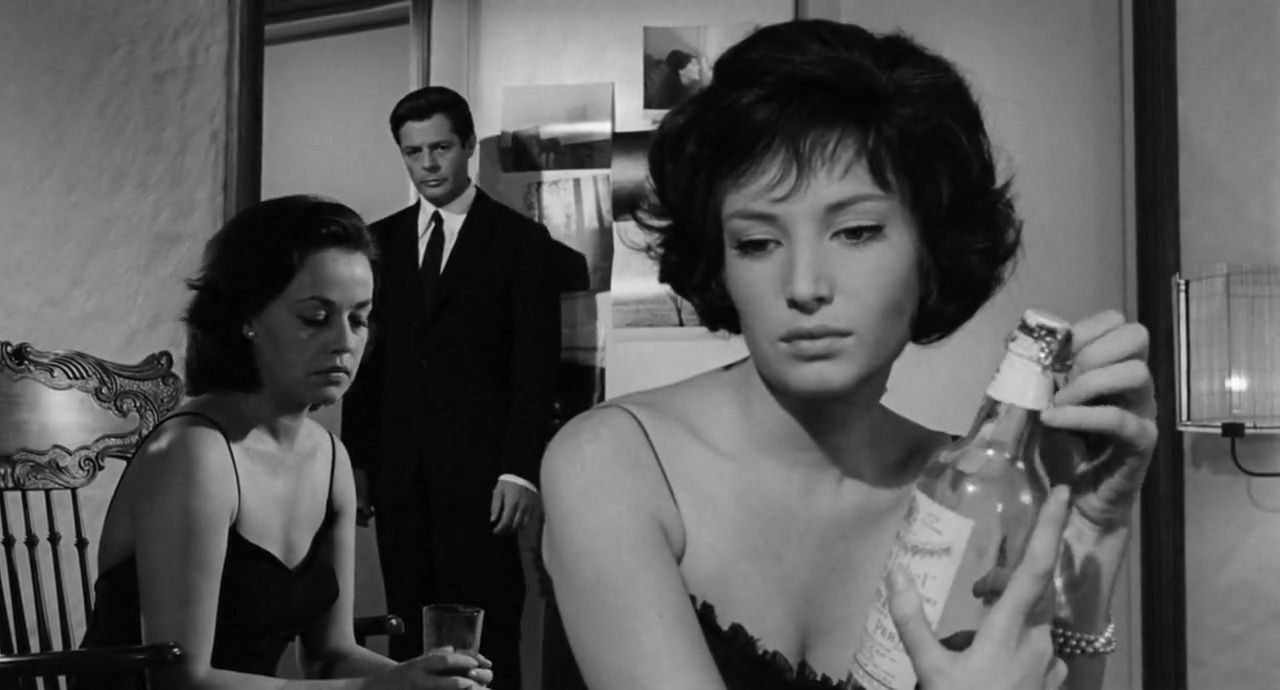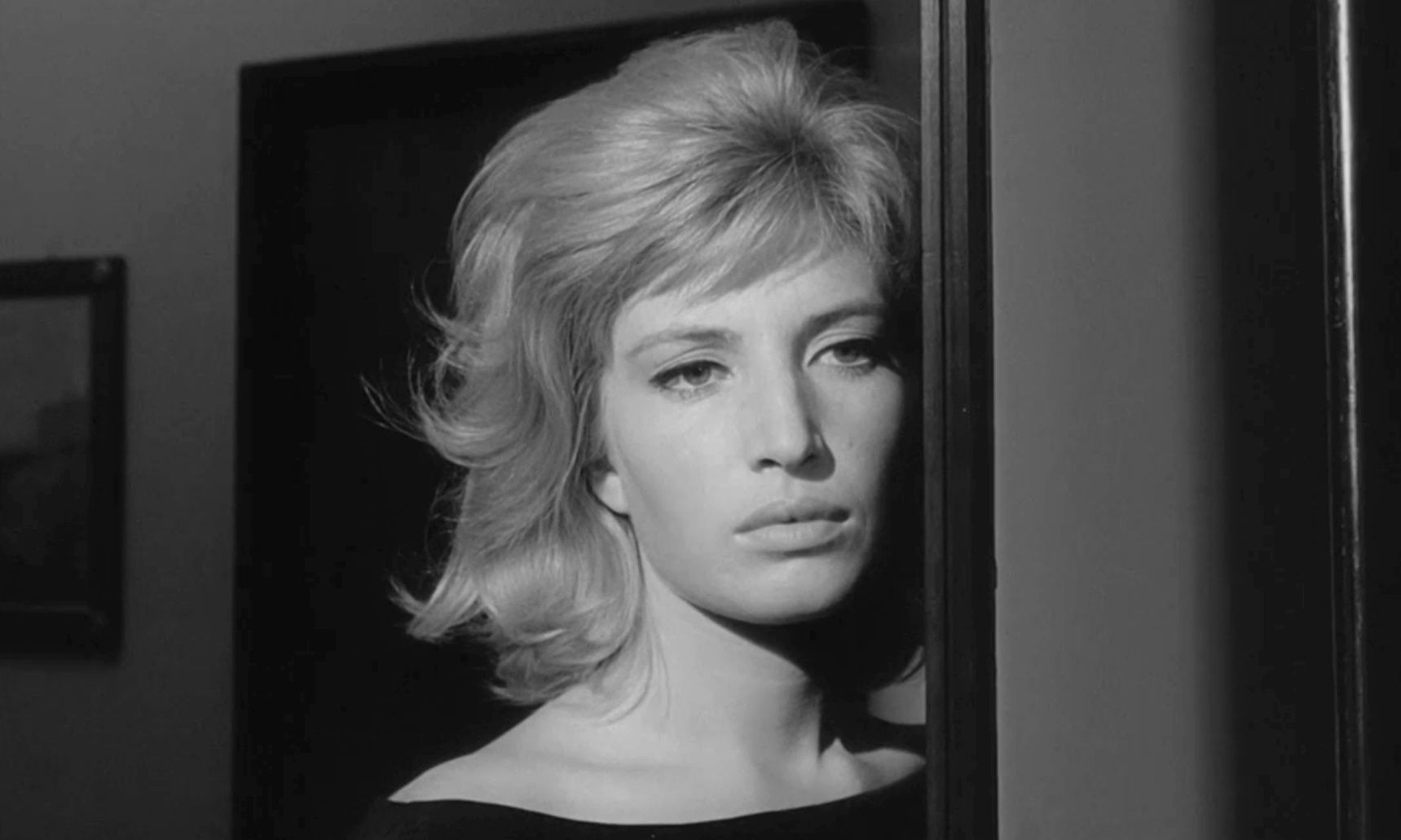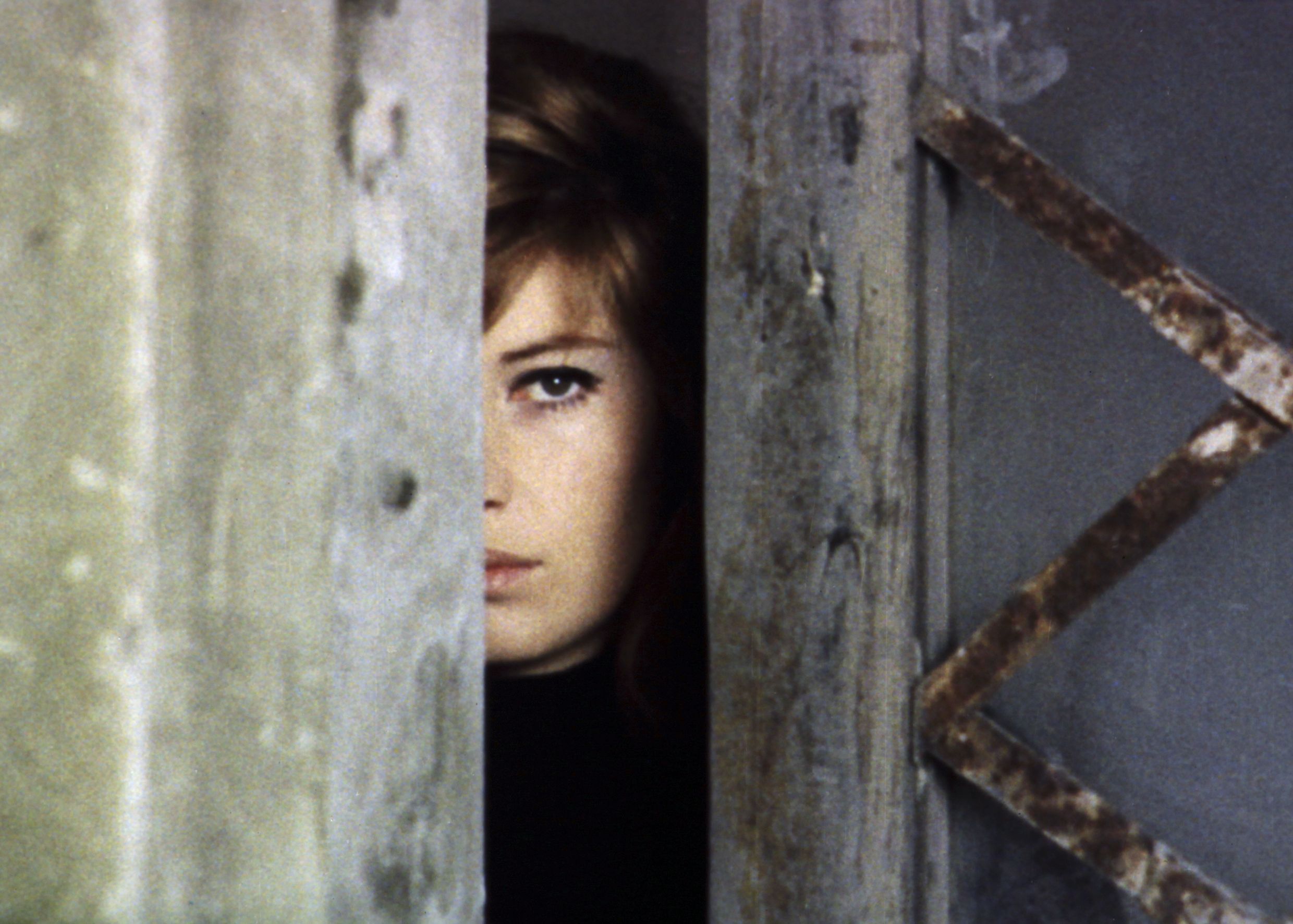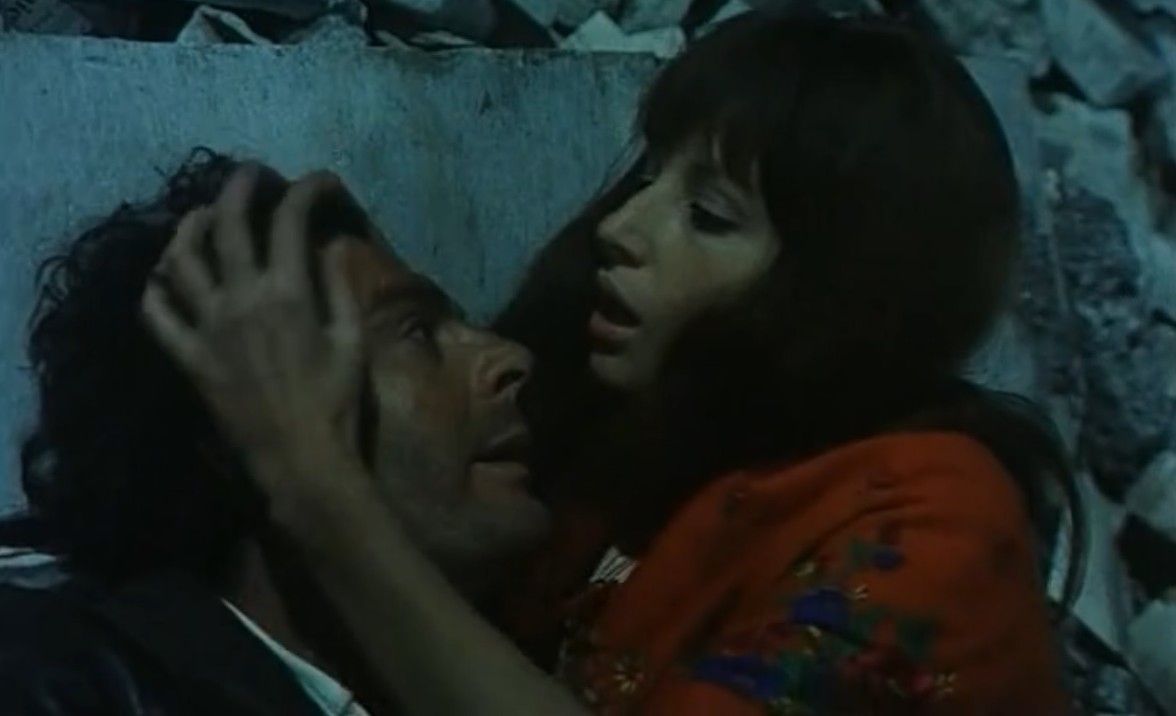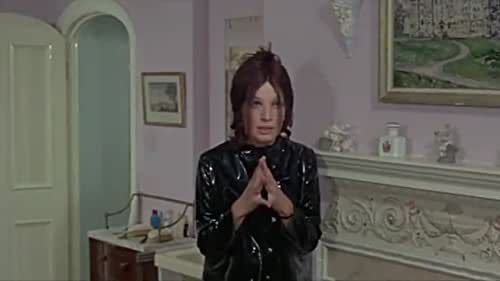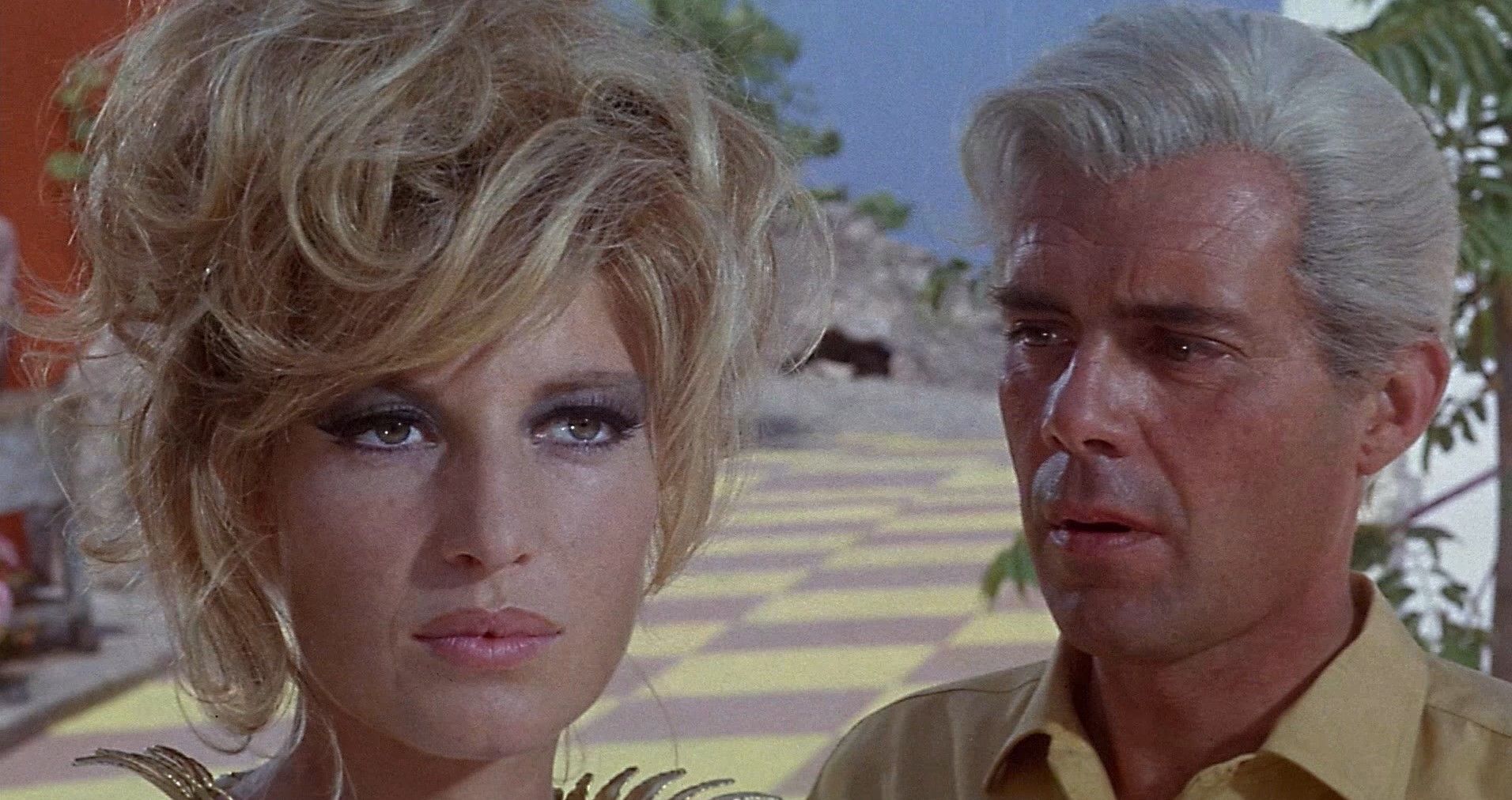When Monica Vitti passed away in January, the world of cinema lost a beloved icon. Vitti was a crucial figure in Italian film, having starred in numerous movies that span a wide range of styles and genres. Though most known by contemporary filmgoers for her several starring roles in the films of Michelangelo Antonioni, her presence throughout 60s and 70s cinema is full of unexpected treasures.
Along with actors like Sophia Loren and Marcello Mastroianni, she gave a face to Italian cinema. Few stars could capture a scene as effectively as Vitti. Regardless of a film’s tone — or even its quality — she was able to demand attention and make viewing worthwhile. What makes her an even more impressive performer is her ability to master both drama and comedy with the same level of precision.
While all Vitti is good Vitti, there are certainly some that stand out above others, so we’ve compiled a list of seven films to remember the late actress. From crushing social alienation to gleeful Italian comedies, there’s surely something to please everybody, so with no further ado, check them out below.
L’Avventura (1960)
Vitti began her collaborations with Antonioni with L’avventura, a star-making picture that quickly catapulted the actress to international success. The film follows the disappearance of a young woman (Lea Massari) as her lover (Gabriele Ferzetti) and her best friend Claudia (Vitti) search for her across a desolate Italian landscape. It’s a mystery film unlike any other, one where the search for the missing becomes something else entirely. Instead, the search turns within as the characters attempt to make sense of themselves in relation to the lives they’ve built.
Antonioni’s vision shows empty-but-gorgeous architecture and bleak seascapes to conjure feelings of alienation and emotional desperation. It’s a perfect backdrop for one of Vitti's most emotionally despairing performances ever committed to film, with Claudia exuding utter bewilderment at her own inescapable emptiness. All of it is haunting but too fantastic to look away from.
La Notte (1961)
In La Notte, Antonioni’s second film in a thematic trilogy, Vitti is given a supporting role as Valentina Gherardini, the spoiled but lively daughter of a swanky aristocrat. Married couple Giovanni (Marcello Mastroianni) and Lidia (Jeanne Moreau) have their already troubled marriage tested to even greater lengths when Giovanni meets Valentina at one of her father’s lavish parties. Antonioni once again adheres to his signature by creating deeply expressive visuals that trump a conventional narrative.
La Notte excellently captures the sorrow of a fractured marriage while examining the emptiness of an aimless bourgeois lifestyle. It's a deeply brooding film in which characters never seem to find happiness, instead finding acceptance of their own misery. While it offers the triple threat of three of European cinema's greatest actors, Vitti manages to make the most of her comparatively infrequent screen time by leaving a lasting impression on both Giovanni and the audience. She exists as a glimmer of hope, an inspiring soul who can create a captivating game out of nothing and turn a lifeless party into something exceptional.
L’Eclisse (1962)
Vitti reunites with Antonioni once again with L'Eclisse, the final film in his thematic trilogy of social malaise. After abruptly ending her current relationship, Vittoria (Vitti) begins an affair with an impassioned stockbroker (Alain Delon) as the two attempt to make sense of their place in the complicated world around them. As usual, there's plenty to chew on, with heady philosophical themes getting preferential treatment to traditional storytelling.
As Vittoria navigates the Roman landscape, Vitti once again portrays a complicated—and conflicted—victim of the modern era. While she and Delon undeniably have a sort of romantic chemistry of their own, the film strays from concerning itself with whether or not they stay together. It isn't the point. They continue to flirt, express desire, but most importantly struggle to communicate. Their passion culminates in an exquisitely expressive glass-kissing scene that can only be given justice through viewing. Finally, after the drama finishes, the film ends with the titular eclipse, a terrifying final sequence meant to serve as a metaphorical apocalypse. It's an example of what cinema can truly be, and fantastic success in pushing the medium into previously uncharted territory.
Red Desert (1964)
Red Desert, Antonioni’s transition into color cinematography, stands as one of the director’s finest works, and continues his investigation into the long-term costs of social alienation. Giulietta (Vitti) is married to an industrial worker (Carlo Chionetti) and is haunted by the environment in which she lives. She finds herself on the brink of mental collapse, surrounded by imposing industrial landscapes and electrical skylines. It’s only when she meets Corrado (Richard Harris), her husband’s business associate, that she is able to begin to express her anxieties.
While several of the director’s previous films heavily featured Vitti in leading or supporting roles, Red Desert is arguably the film that pays the actress the most attention. It is her film, and she’s given the room to depict a devastating portrait of modern anxiety. Antonioni and Vitti work wonders to express the unfavorable social consequences of industrialization in a rapidly modernizing society. The world portrayed is one entirely unnatural, with smokestacks and electrical towers appearing as menacing, inescapable figures. With a deeply affecting atmosphere, vibrant and hand-painted sets, and a glitchy electronic score by Vittorio Gelmetti, Red Desert is a psychological drama unlike any other and is sure to leave an impression long after the credits.
The Pizza Triangle (1970)
Released in Italy as A Drama of Jealousy (With All the Details), The Pizza Triangle reunited Vitti with Marcello Mastroianni for a zany Italian comedy about the pitfalls of romantic jealousy. When married laborer Oreste (Mastroianni) meets charming flower girl Adelaide (Vitti), the two begin a passionate romance—that is, until Communist-sympathizing pizza chef Nello (Giancarlo Giannini) woos Adelaide through sending her a heart-shaped pie.
With its non-chronological and often self-contradictory narrative, The Pizza Triangle sets itself apart from many other films of its ilk through a free-spirited style. The characters are exuberant, if not preposterous, and the roles allow the actors to lose themselves in their performances. Vitti is fantastic as the woman trapped between two loves, with the actress masterfully toeing the line between comedic excellence and genuine dramatic heartbreak.
The Girl With a Pistol (1968)
One of Vitti’s fiercest roles comes in the comedy The Girl With a Pistol. Dealing with heavy themes of bride-kidnapping and honor killing, the film follows Assunta (Vitti) as she travels to England in pursuit of her fleeing lover (Carlo Giuffrè) after he refuses to marry her. It’s an accomplishment to make such a light-hearted, breezy picture out of its weighty subject matter, but the film succeeds on this front, largely due to an endearingly vulnerable and ferocious performance by Vitti.
There’s a tremendous amount of charm in seeing Assunta, a fish out of water in England, trying to make her way across unfamiliar territory and encountering a number of unusual characters along the way. While the film isn’t without its faults, there’s much to appreciate here. There’s the infectious psych-rock theme song by composer Peppino De Luca, a feminist message at its core, and one fabulous Vitti hairstyle after another. It’s well worth watching for fans of the actress, and it’s certainly one of the most easygoing of her pictures.
Modesty Blaise (1996)
In her first English-language film, Vitti shines as the titular Modesty Blaise, a retired jewel thief recruited by the British Secret Service to protect a valuable shipment of diamonds. There’s practically something for everybody: musical numbers, visual gags, romance, suspense, fourth-wall-breaks, and enough campy stylistic flair to ensure the film’s position as a cult classic. It’s essentially a James Bond spoof with pop-art sensibilities and one odd sense of humor.
Even though Vitti had her share of comedic roles prior to Modesty Blaise, this is one of her most delightful romps into the genre. A fair amount of the screen time is devoted to the diabolical mastermind Gabriel (Dirk Bogarde) and Modesty’s romantic sidekick Will (Terence Stamp), but this is undeniably Vitti’s film. Whenever she appears, she steals the scene with a laidback charm that couldn’t feel more natural. It’s a wonderful portrayal of a film iconic at her most easygoing, and an endearingly odd tribute to spy films, comic books and Vitti herself.

